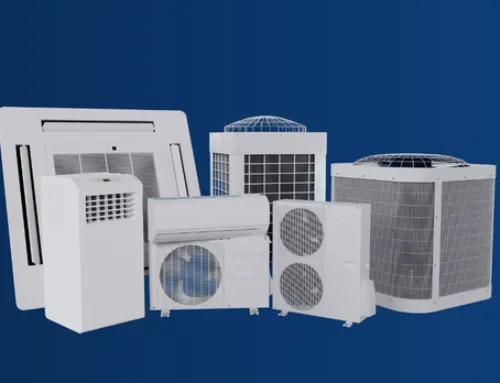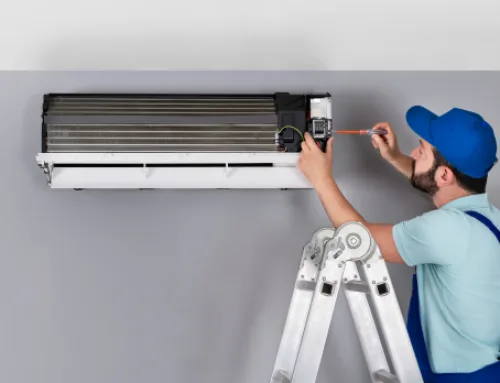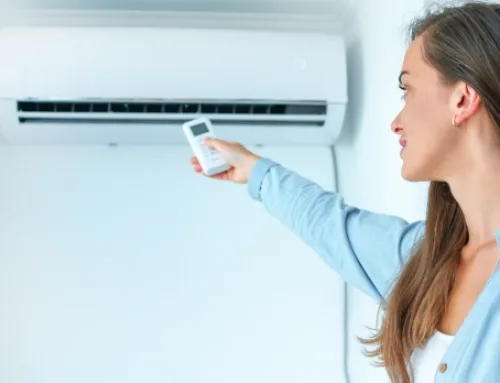Investing in a new air conditioner is a significant decision. When buying a central air conditioner, you need to ensure a cooling system seamlessly fits your needs. Choosing the wrong size air conditioner can quickly escalate into costly problems, and you will only regret what should have been a satisfying purchase.
In this blog, we’ll discuss how to choose the right size AC for your home. We’ll guide you through the process, showing that bigger isn’t always better. We’ll also talk about how AC technology has changed over the years and why it’s important to have the right size AC to save on energy bills.
So, let’s get started.
Why is the Size of AC Important?
Imagine this scenario: you’ve invested in a state-of-the-art central air conditioning system for your home, expecting a cool and comfortable ambiance throughout the scorching summer months. However, as the heat wave hits, you find your home is either freezing cold or barely cooler than the outside. This unfortunate situation arises from a common oversight: incorrectly sizing your central air conditioner.
Properly sizing your central air conditioner is essential for several reasons:
- Efficient Cooling: An accurately sized central AC unit can efficiently cool your home to the desired temperature, creating a comfortable environment without excessive energy consumption.
- Energy Efficiency: An oversized AC will frequently cycle on and off and consume more energy, resulting in higher energy bills. Conversely, an undersized AC unit will constantly run, straining to reach the set temperature and also increasing energy costs.
- Longevity of the System: Correctly sized air conditioning systems experience less wear and tear, leading to a longer lifespan for the equipment. On the other hand, an improperly sized unit may face premature breakdowns and require frequent repairs.
- Optimal Humidity Control: An adequately sized AC unit can effectively control indoor humidity levels, providing a more comfortable and healthier living environment.
How To Decide the Size of Your Central AC?
Calculating the appropriate size for your central air conditioner involves several key considerations. While a general guideline based on home size is a starting point, you should also consider other factors for an accurate assessment.
Air Conditioner Sizing by Home Size
A general guideline is to estimate cooling capacity based on square footage. For instance, in Canada, using 10-15 BTU (British Thermal Units) per square foot is a common approach. However, this calculation can fluctuate depending on your home’s unique characteristics.
Window AC Sizing by Room Type
More than just square footage, you must also consider the size of your ductwork, insulation levels, window and door count, and room layout. These variables contribute to the cooling load and influence the AC size.
To provide a rough estimate of your AC unit’s size, check the following calculation:
Calculate Minimum Cooling Capacity: Multiply your home’s square footage (excluding the basement) by 10 BTU/hour. For example, a 1,500 square feet space multiplied by 10 results in a minimum cooling capacity of 15,000 BTU/hour.
Here’s the approximate cooling capacity chart for your reference.
Source: Isley
While this calculation offers a preliminary idea, it’s advisable not to finalize your choice without consulting HVAC professionals. They account for your home’s nuances and ductwork conditions to determine the exact AC size required.
Other Factors That Affect Air Conditioner Size Requirements
Let’s check out some other factors that are overlooked sometimes but are still very important for selecting the properly sized central AC.
1. Ceiling Height
The height of your ceilings might not be the first thing that comes to mind, but it greatly influences your air conditioner’s size requirements. Taller ceilings create additional cubic footage that needs to be cooled, demanding a higher cooling capacity to maintain an even and comfortable temperature throughout the room.
2. Climate and Regional Temperature Variations
The climate you reside in and the regional temperature variations significantly impact your air conditioner’s sizing needs. Warmer climates necessitate larger AC units to combat higher outdoor temperatures, while areas with milder climates can suffice with smaller units to achieve the desired indoor comfort.
3. Heat-Generating Appliances and Electronics
Heat-generating appliances such as ovens, stoves, and electronics influence your home’s internal heat load. These devices emit heat, contributing to the overall cooling load. Consequently, the more heat-producing appliances you have, the higher the cooling capacity your air conditioner should possess.
4. Home Facade and Orientation
The external aspects of your home, including its facade and orientation, intricately shape its heat gain and loss characteristics. A south-facing home, for instance, absorbs more sunlight and heat, necessitating a larger air conditioner to counteract the additional thermal load. On the other hand, well-insulated homes with minimal sun exposure may require a smaller unit.
5. Insulation Quality and Air Leaks
The effectiveness of your home’s insulation and the presence of air leaks significantly influence your air conditioner’s sizing requirements. Well-insulated homes retain cool air more efficiently, leading to reduced cooling loads. Conversely, homes with poor insulation and air leaks demand larger cooling capacities to counteract heat infiltration.
6. Sun Exposure and Window Placement
The positioning of your windows and the degree of sun exposure they receive further contribute to your air conditioner’s sizing needs. Sunlit rooms experience higher heat gain, necessitating larger cooling units. Conversely, shaded or north-facing rooms may require smaller units.
The Problems of Incorrectly Sized Central Air Conditioning
Selecting an air conditioner that is too large or too small for your home can lead to a host of issues that negatively affect your comfort, finances, and the equipment itself.
1. Your House Won’t Get Cool Enough
An oversized AC may cool your home quickly, but it will shut off before effectively removing humidity, leaving you with a damp and uncomfortable environment.
2. Your AC Will Need More Frequent Repair
Improperly sized units are more prone to breakdowns and require frequent repairs due to the strain of cycling on and off excessively.
3. Operating Costs Will Go Way Up
Oversized units waste energy by turning on and off frequently, while undersized units run continuously to meet the cooling demand, both leading to higher energy bills.
4. Your Air Conditioner Won’t Last As Long
Constant cycling and strain on the equipment can lead to premature wear and tear, reducing the lifespan of your central air conditioner.
Benefits of Seeking Expert Advice
Navigating the intricacies of central air conditioner sizing can be daunting, but you don’t have to do it alone. Seeking the expertise of HVAC professionals can make all the difference. These professionals perform detailed calculations considering your home’s unique characteristics and cooling requirements to recommend the ideal AC size for you.
HVAC experts can offer the following benefits:
- Accurate Sizing Calculations: Professionals perform comprehensive heat load calculations that account for all relevant factors, ensuring your AC system is neither too big nor too small.
- Energy Efficiency and Cost Savings: With a correctly sized AC, you can enjoy optimal energy efficiency, lowering utility bills over time.
- Long-Term Performance: Proper sizing extends the lifespan of your central air conditioner, reducing the likelihood of frequent breakdowns and repairs.
- Improved Comfort: HVAC professionals ensure your home remains consistently comfortable, with balanced cooling and humidity levels.
Conclusion
Selecting the right size central air conditioner is a decision that significantly impacts your home’s comfort, energy efficiency, and budget. While estimating based solely on home size may be tempting, it’s essential to consider various factors such as climate, insulation, and sun exposure.
Making an informed decision requires thoroughly understanding your home’s unique characteristics.
We at Infiniti Home Comfort have over 15+ years of HVAC experience and are a Carrier Factory Authorized Dealer. We offer reliable AC installation services. Our HVAC experts can help you choose the right central AC unit and ensure the optimal performance and longevity of your central air conditioning system.
So, before the next heatwave hits, take the time to assess your cooling needs and invest in a central air conditioner that’s just the right fit. Your comfort and savings will thank you.





